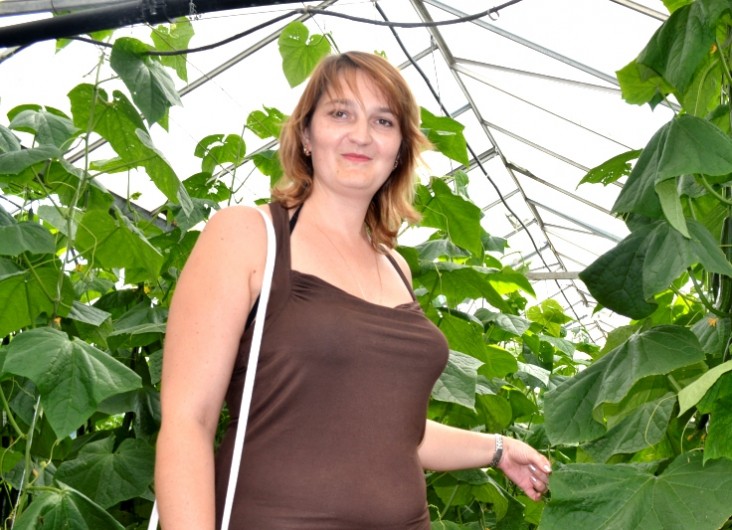
April 2015—ProdEco, a company that specializes in growing tomatoes, cucumbers, and sweet peppers in greenhouses in the town of Vladimirovca, in the Transnistrian region of Moldova, has tripled its total vegetable production over the past two years. But such success was not wholly predicted. It took exposure to the right elements to realize such marked gains.
Tatiana Bilscaia, the manager of the enterprise, recalls that when she started with the company in 2013, she was not entirely certain that turning old greenhouses, built dozens of years ago, would result in a profitable business. The company was formed in 2010.
But she was fueled by a determination to succeed once she became involved in the Agricultural Competitiveness and Enterprise Development Program (ACED), a USAID-Millennium Challenge Corporation joint effort. Under the program, ProdEco participated in the 2013 Fruit Logistica trade show in Berlin, where they connected with ready buyers of produce and suppliers for seedling materials and drip irrigation equipment.
An ACED drip irrigation study tour to Romania was the key to the turnaround for ProdEco.
“Due to ACED seminars and study tours, we decided to install drip irrigation,” says Bilscaia. The company has already invested $5,500 in drip irrigation, with plans to invest $10,000 total.
After following ACED suggestions, which Bilscaia refers to as a “recipe for success,” in 2013, the company harvested a total of 214,000 kilos of vegetables, and in 2014, the yield increased to 650,000 kilos.
Bilscaia and other ProdEco staff continue to regularly take part in ACED seminars organized for Moldovan vegetable producers. She is also an active member of the ACED-supported Women in Agriculture Network.
“I have gained a lot of knowledge from ACED regarding a number of technical issues related to vegetable production: greenhouse design, pH control, food safety requirements, and harvesting and post-harvest handling. At ProdEco, we have also implemented a plant protection regime with key parameters as suggested by ACED,” said Bilscaia.
Using the new production techniques, ProdEco increased its output and opened four sales outlets, leading to greater profitability for this small business.
“It is a new step, but also a new challenge for us, as we need to develop our post-harvest infrastructure, including a sorting line and modern packaging,” said Bilscaia.
Building on the momentum, she plans to begin hydroponic vegetable production, a new technology for growing plants in nutrient solutions of water and fertilizers.
The ACED program, which runs from 2011 to 2016, is designed to help the agriculture sector in Moldova improve the production and marketing of high-value crops.
LINKS
Follow @USembMoldova, on Facebook







Comment
Make a general inquiry or suggest an improvement.